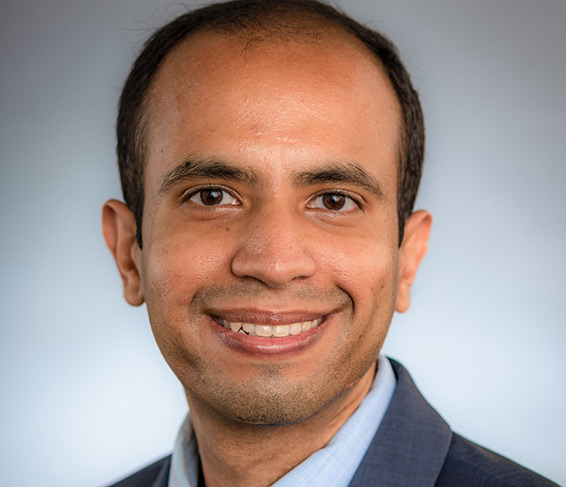Key Takeaways:
- Performing “neck checks” can help you become familiar with what your thyroid looks and feels like.
- Typically, the nodule will feel firmer than the rest of the thyroid gland.
- Although the chances are low that a thyroid lump is cancerous, early detection is important.
- If you feel any changes to your thyroid gland or are experiencing symptoms like tenderness or difficulty swallowing, it is important to talk to your doctor.
While 80 to 90 percent of reported thyroid lumps are not cancerous, performing “neck checks” can help you become familiar with what your thyroid looks and feels like, so you can tell your health care professional if you notice any changes.
How to feel for thyroid lumps
- Sit or stand up straight, and make sure your neck muscles are relaxed.
- Tip your head back and swallow.
- As you swallow, feel your thyroid gland at the base of your neck, located below the larynx (voice box) and above the collarbone, and check for any nodules or asymmetry.
Does a thyroid cancer lump hurt?
It is usually painless. If it is tender, that could mean that a tumor is growing relatively fast, which could be a warning sign. On the other hand, there are a lot of things that could cause discomfort in the thyroid gland, like inflammation, so pain is not necessarily a good or bad sign.
In fact, aside from tenderness or difficulty swallowing, symptoms of thyroid cancer are often subtle. Thyroid cancer cases are generally found during a routine checkup, or through imaging tests done because of other health concerns.
What does thyroid pain feel like?
You may experience pain at the site of your thyroid gland if it is having issues, for example it may be inflamed due to a condition called thyroiditis. The area may be tender to the touch. You may feel a sharp pain when you palpate it. You should see your physician if you feel thyroid pain near the base of your neck. They will be able to help identify the cause.
What does thyroid cancer look like?
The thyroid is a butterfly-shaped gland that wraps around the front of the base of your neck. Early-stage thyroid cancers usually present as a small nodule that is difficult to see with the naked eye. These generally do not cause symptoms and are usually detected during a routine physical examination of the neck. Nodules can then be further visualized with an ultrasound or CT scan.
More advanced thyroid cancers may appear as swelling near the base of the neck where the thyroid is located. This can be accompanied by other symptoms such as shortness of breath, difficulty swallowing, coughing, hoarseness, a “tickle sensation” in the throat, and pain. However, many of these symptoms can have other causes and it is important to consult a physician.
What does a lump/thyroid nodule feel like, and what should I do if I have one?
Typically, the nodule will feel firmer than the rest of the thyroid gland, but you should look for asymmetry, and if you can palpate something that counts. If you feel a nodule, you should contact your doctor.
Patients are referred to an endocrinologist, where an ultrasound can determine if the thyroid gland lump looks suspicious. If it does, the endocrinologist or pathologist will use a small needle to remove tissue or fluid from the thyroid to examine it for cancer cells.
Thyroid nodules are very common and frequently reported, and the overwhelming odds are that they will be benign.
Although the chances are low that a thyroid lump is cancerous, early detection is important. If you feel any changes to your thyroid gland or are experiencing symptoms like tenderness or difficulty swallowing, it is important to talk to your doctor.
Thyroid cancer is a very curable disease; it is important to detect early and have treatment right away.
This article was originally published in 2016 and was reviewed again in 2022 for medical accuracy.
About the Medical Reviewer

Dr. Sehgal completed his fellowship training in hematology and medical oncology at Beth Israel Deaconess Medical Center, a Harvard Medical School teaching hospital, in 2020. Prior to this, he earned his medical degree from the All India Institute of Medical Sciences, New Delhi, and finished residency training in internal medicine at Yale-New Haven Hospital, CT. Dr. Sehgal's research interests are in the fields of translational immuno-oncology and experimental therapeutics. He has previously trained in the Dhodapkar Laboratory at Yale University and Barbie Laboratory at Dana-Farber Cancer Institute. His research has led to publications in scientific journals such as Science Translational Medicine, Nature Medicine, Blood and Journal of Immunology. He is currently engaged in clinical and translational research directed towards delineating mechanisms of therapeutic resistance to immune checkpoint inhibitors and developing more effective combinations with molecularly targeted therapies.

Thanks for this article!. Cancer is a very dangerous and tough disease that will collapse not only the patient but also his family. it damages will damage physically and economically. But luckily we are in a generation we have some Doctors, Hospitals which give the best treatment at a low cost. With the best treatment and Strong Inner Strenght, we will definitely win against Cancer.
Thanks for this article!. This post was very informative and very interesting. these days most of the women facing Thyroid problems and most of them firstly confused it as Cancer. I ho[e after reading these post most of them clear their doubts